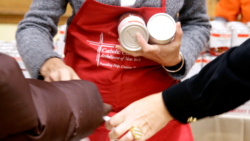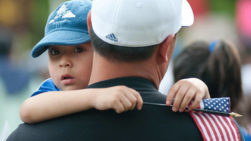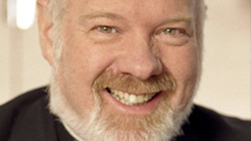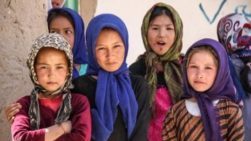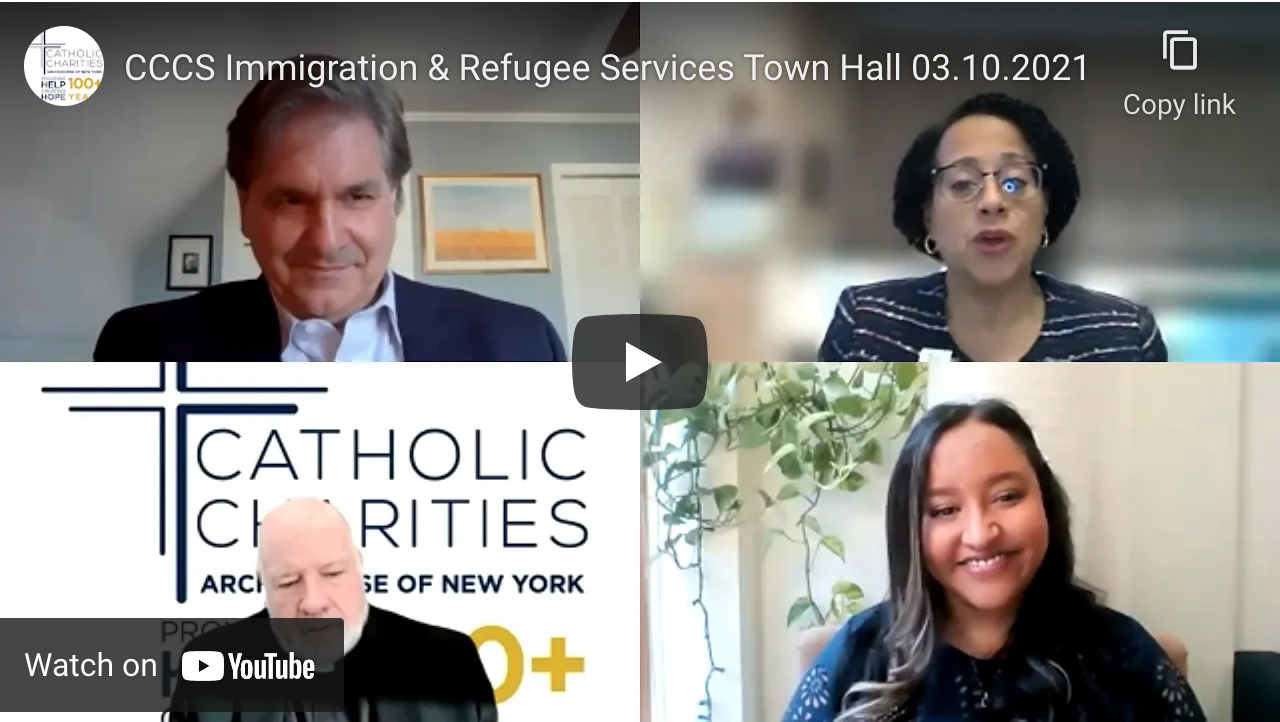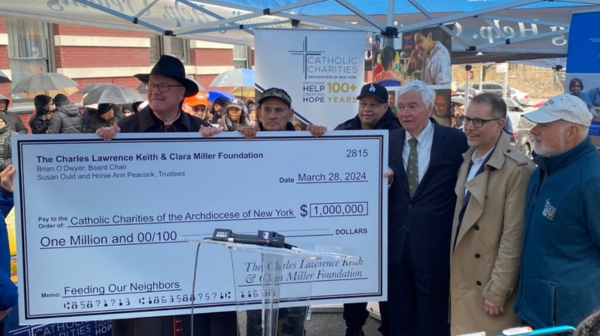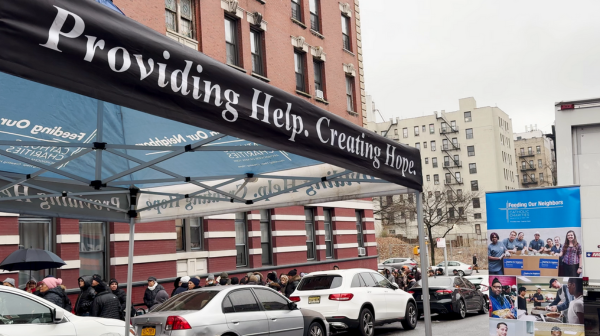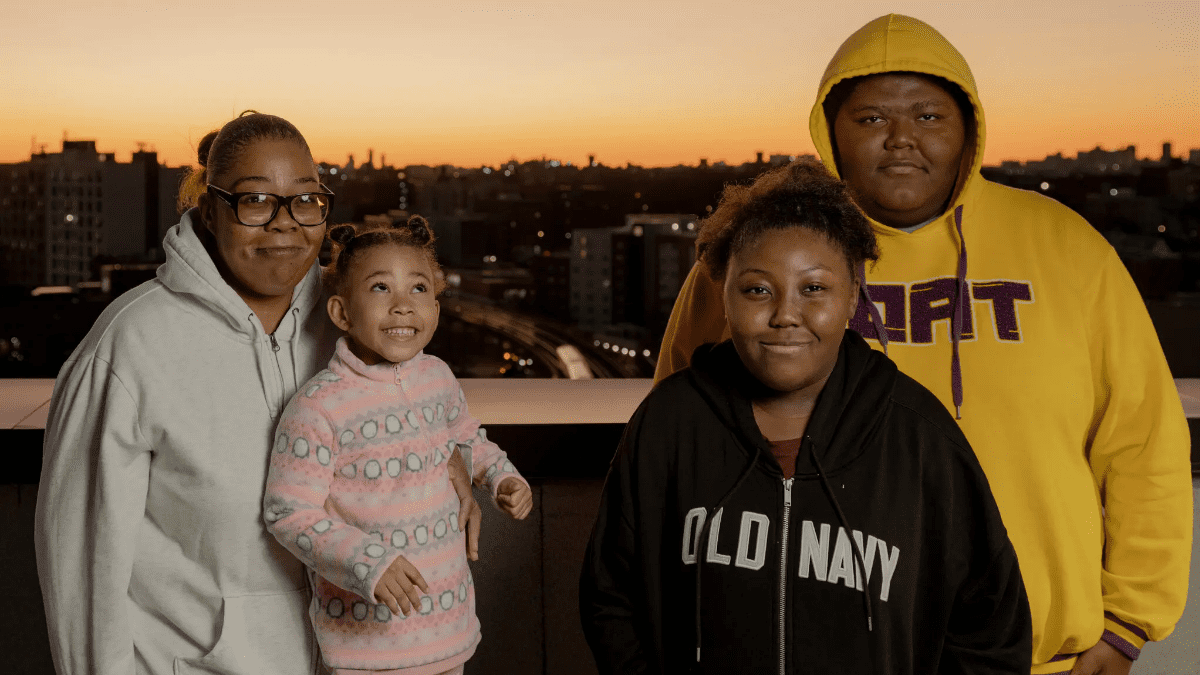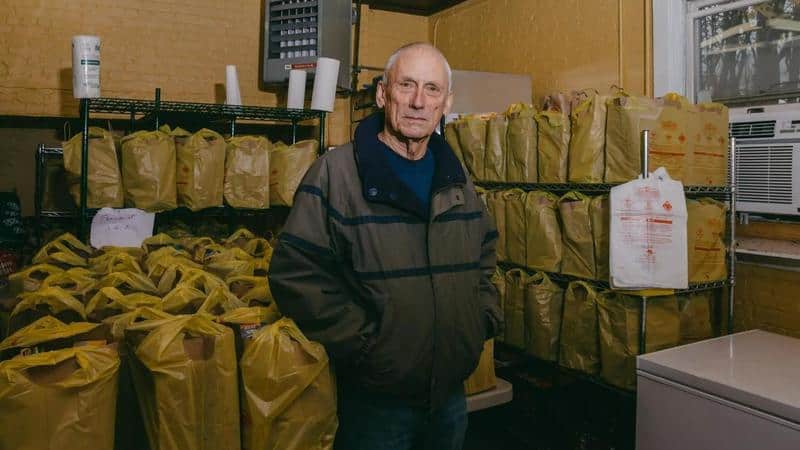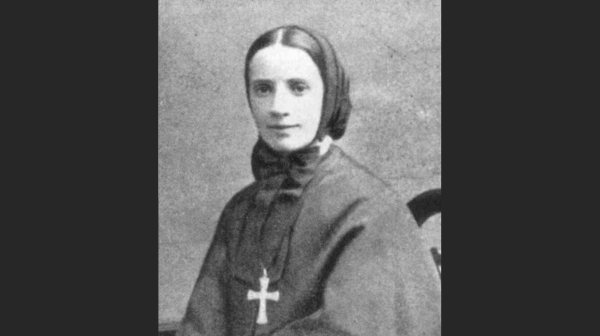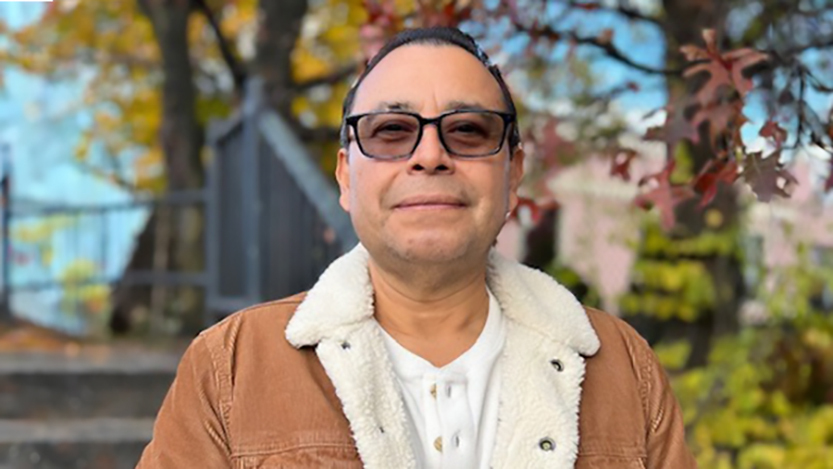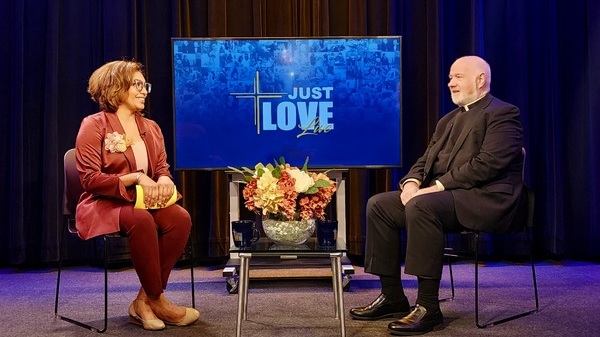“In 2020 we served over 100,000 immigrants.”
Immigration has risen to the top of the news cycle in recent weeks. With the recent change of administration in Washington, new executive orders, agency policies, and legislative reforms that affect immigrants and refugees have been issued or proposed. Critics, however, suggest that these new policies and reforms have fueled a surge of immigration. Catholic Charities of the Archdiocese of New York has always worked closely with migration at the southern border. Each day assisting unaccompanied children escaping violence, asylum seekers, families seeking reunification, and those fleeing from persecution. This is part of Catholic Charities’ mission and commitment as it looks to America’s future.
On Wednesday March 10th Catholic Charities of New York held a Town Hall conversation on the topic of immigration. In attendance were several leaders in the area of immigration including Monsignor Kevin Sullivan, Executive Director of Catholic Charities of the Archdiocese of New York and Chris Birosak, Trustee and Chair of Program Quality Improvement for Catholic Charities New York, along with other colleagues leading the delivery of services to the immigrant community.
Beatriz Diaz Taveras, Director of Catholic Charities Community Services provided perspective on CCNY’s efforts in immigration. “In the late 1970s Catholic Charities established the office of Immigrant and Refugee Services. For over forty years we provided immigrant legal services by helping residents become citizens and petition their families; resettling refugees escaping persecution in their home countries, and many other services. Just in 2020 we served over 100,000 immigrants.”
Though the last several years had seen changes that restricted immigration policies including the very visible crisis of overcrowding in refugee shelters, a new White House promises to update policy and restore compassion to the immigration process. Compassion is something Catholic Charities has a lot of experience with, and they see immigration with expert eyes.
Maryann Tharappel, director of Special Projects for Immigration and Refugee Services pointed out that the recent Executive Order on the Revision of Civil Immigration Enforcement Policies and Priorities revokes the previous order that punished sanctuary cities. She further clarified that it also reverses “the labelling of any undocumented individual as a criminal at whom all the available resources should be directed to deport.” The new order focuses instead on those who commit violent crime for deportation.
Lucia Goyen, CCNY’s Community Engagement Manager, discussed how the DREAM Act remains merely a proposal, and how DACA is only a temporary patch, and how neither offers a path to citizenship. She elucidated the importance of supporting these younger people, brought here as children and who grew up in America. “They studied in our schools, they’re part of the fabric of our society, and they really pushed forward to advocate for themselves to make sure they could get protections. But that (the Dream Act) never got passed”.
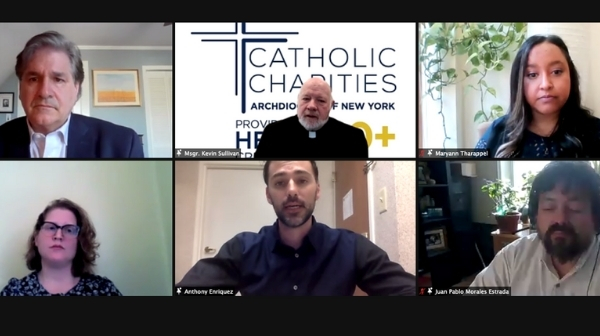
Anthony Enriquez, Director of Unaccompanied Minors Program for Catholic Charities pointed out that the narrative of “surges” that we hear in the news is misleading. “Now that the Biden administration is permitting the orderly processing of many of these asylum seekers… we’re seeing new numbers and large numbers of people come because they’re already here. They haven’t been newly making this journey, instead they’ve been waiting for well over a year for a chance to tell their story to an immigration judge.”
Juan Pablo Morales Estrada, Coordinator of the Day Laborers Program in the Bronx, discussed the disadvantages facing the day laborer community. “They are working in conditions with no protective equipment. We have cases of wage theft – people who take them to work but then don’t pay them.” Evictions are also more common in the day laborer community because they didn’t have a proper understanding of their rights, namely, State eviction-protections. Their families would go hungry too. Estrada added, “We try to organize them, we give them ‘Know Your Rights’ clinics, and wage theft clinics, health clinics, concerts too!”
Mario Russell, Director of Immigrant and Refugee Services, shared how the old structures of gradual migration don’t work anymore. “Children might have lived with their grandmother or aunt or their great uncle in their home country and the parent in the US would send money to help that community grow, help the children thrive, maybe go to a better school in their home country. But with gang violence and narco-cartels occupying the social and political spheres in so many of the communities, that structure of migration is no longer tenable. So, children are forced to leave because their caretakers can’t care of them anymore, and children in particular are vulnerable to recruitment into the gangs.”
The common thread among these experts seemed to be the need to take advantage of a renewed willingness to work with migrants to get them the help they need. Though the road ahead may be long and difficult, immigrants have proven willing to do what it takes. And Catholic Charities is committed to helping them work towards citizenship.
Catholic Charities’ immigration and refugee services provide for the undocumented in the Archdiocese. They provide legal consultation to over 10,000 people a year, and taking on the cases of approximately 5,000 of these. Case managers connect people with job preparation, placement and support. The International Center teaches English (ESOL) to more than eight hundred adult learners each year. The New American Hotline handles over 75,000 calls a year and partners with media outlets to help people learn their rights. The National Children’s Call Center helps over 5,000 children a year obtain pediatric care and legal/court support. Catholic Charities of New York even has programs to support day laborers: they train them in workplace safety, and Occupational Health and Safety Administration certification.
If there is a take away from this town hall meeting is that Catholic Charities of The Archdiocese of New York does more than just acknowledge the challenges of immigration, it sets a standard for compassionately and effectively providing support. They help, but they also give hope that someday immigrants will be able to fully enjoy the fruits of independence and prosperity promised to all Americans.


